 | « Back to article | Print this article |
There are moments at the Olympics that have a sporting significance, and then there are those moments that leave an indelible mark on humanity.
Rediff.com's Norma Godinho traces those moments at the Games that have transcended sport to become part of history.
Women athletes compete for the first time
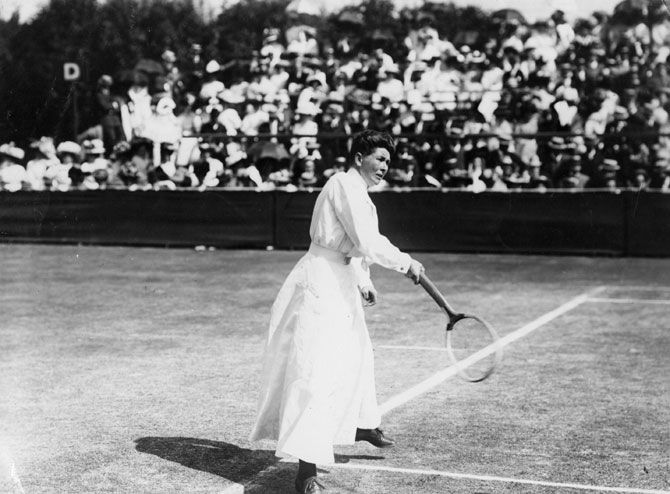
At the 1900 Olympic Games in Paris, 22 women broke the glass ceiling.
The second modern Olympic Games allowed the participation of lady athletes only in tennis, sailing, croquet, equestrianism and golf.
Sailor Hélène de Pourtalès became the first woman Olympic champion. Charlotte Cooper was the first woman to win an individual Olympic event after winning the women's singles tennis competition.
Those 22 women ensured that lady athletes would be a permanent fixture at the Games.
The 2012 London Games heralded a new milestone -- it was the first time that women athletes from every competing country were present at the Games.
Jesse Owens versus Adolf Hitler
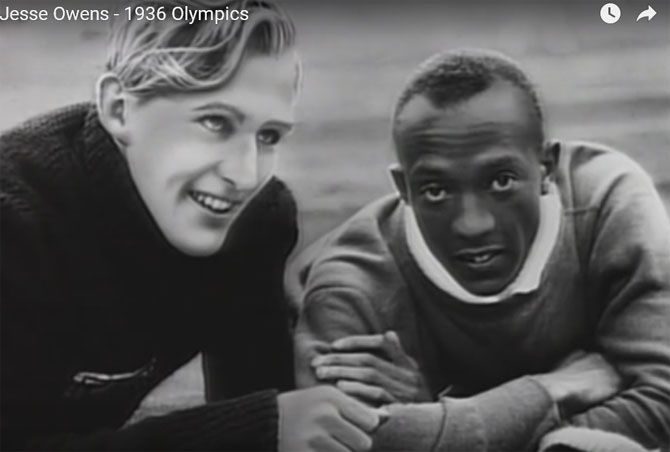
The 1930s saw the rise of Adolf Hitler and the Nazis in Germany.
When Berlin played host to the 1936 Olympics, Hitler planned to use the Games as a platform to showcase his warped idea of Aryan racial supremacy.
One man had other plans -- African-American athlete Jesse Owens.
Owens amazed the world and stunned Hitler by winning four gold medals in Berlin -- in the 100 and 200 metres sprints, the broad jump and the 400 metre relay.
Owens went on to forge a deep friendship with a rival, German long jumper Luz Long.
Speaking of the bond he struck with Long, Owens said in an interview: 'Luz broke his own past record. In doing so, he pushed me on to a peak performance. I remember that at the instant I landed from my final jump -- the one which set the Olympic record of 26 feet 5-5/16 inches -- he was at my side, congratulating me.'
'Despite the fact that Hitler glared at us from the stands not a hundred yards away,' Owens recalled, 'Luz shook my hand hard -- and it wasn't a fake smile with a broken heart sort of grip, either.'
'You can melt down all the gold medals and cups I have, and they couldn't be a plating on the 24-carat friendship I felt for Luz Long at that moment.'
Alas, Long was killed in World War II in the battle of San Pietro in 1943.
Who said the Games was only about competition!
The Paralympics
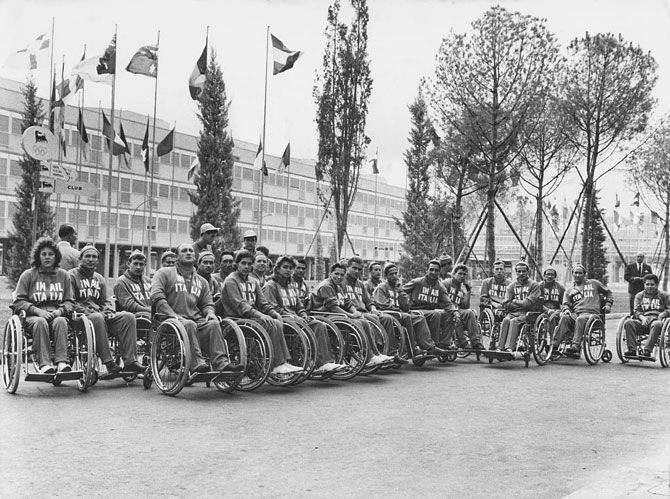
The founder of the International Wheelchair Games to help rehabilitate wounded veterans of World War II, Sir Ludwig Guttmann, an English doctor, is credited with this massive change in Olympic history.
At the first televised Olympic Games -- the 1960 Rome Olympics -- Sir Ludwig brought 400 wheelchair athletes to compete in what was called the Parallel Olympics.
That marked the birth of the Paralympics, a sporting event that has given us sporting idols like horse rider David Lee Pearson -- a ten-time gold medalist -- as well as the now tainted South African track and field star Oscar Pistorius.
The Paralympics has become a popular event that features stories of grit, gumption and strength of character.
Even the numbers have risen since the 1960 Olympics. At London in 2012, 4,302 athletes from 164 National Paralympic Committees participated in 503 events.
Of Black Power and Civil Rights
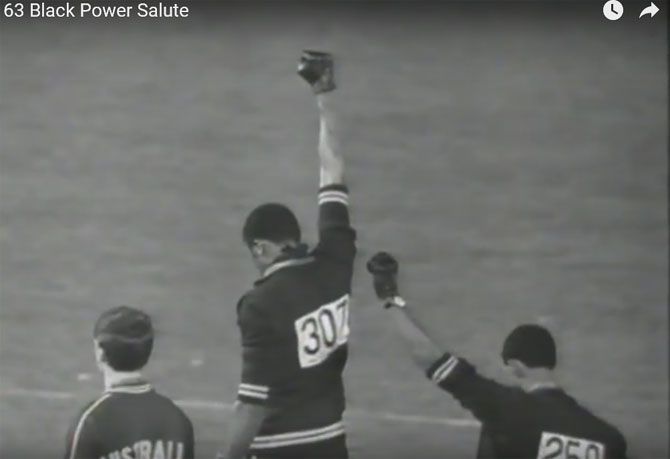
An episode that brought politics, racism and civil rights issues to a sporting arena.
At the 1968 Games in Mexico City, after winning gold and bronze respectively in the 200 metres sprint, African-American athletes Tommie Smith and John Carlos raised their fists in a 'Black Power' salute, a mark of protest, while the American flag was being raised and the US national anthem was played during the medal ceremony.
Both Americans were suspended from the Games Village, but that gesture brought the civil rights situation in America before the world.
Smith later claimed the demonstration was a 'human rights salute' rather than a 'Black Power' salute, and all three men on the podium -- including white Australian athlete Peter Norman, who supported Smith and Carlos -- wore Olympic Project for Human Rights badges during the ceremony.
Terror in Munich

Terror struck the 1972 Munich Games when the Palestinian terrorist group Black September took hostage and killed 11 members of the Israeli Olympic team (a German policeman was also killed).
The Games was well into its second week when the incident happened. The terrorists climbed a wall at the Olympic Village, got hold of the keys to the apartments of the Israeli athletes before taking down their victims.
It was later claimed that the West German authorities had received a tip-off about a potential attack, but it was not taken seriously.
Olympic boycotts
When apartheid in South Africa was at its peak, New Zealand's rugby team toured South Africa. That same team was sent to the 1976 Games in Montreal.
Outraged by the decision, 25 African nations boycotted the Montreal Games. Iraq and Guyana joined the boycott.
Four years later, the US boycotted the Moscow Olympics, protesting the 1979 Soviet invasion of Afghanistan.
The US hosted the Liberty Bell Classic in Philadelphia as an alternative competition for athletes of countries supporting the boycott.
Games turn 100
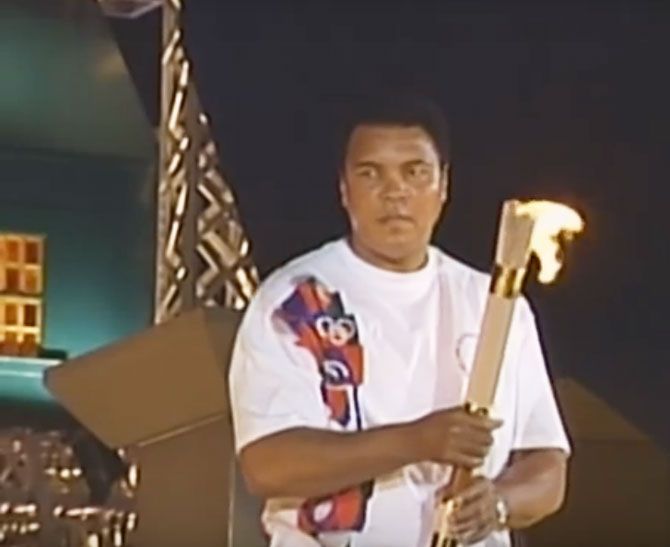
The 1996 Atlanta Olympics marked the centennial of the Games.
Former heavyweight boxing champion and Olympic gold medalist Muhammad Ali lit the Olympic flame during the opening ceremony at the Atlanta Games.
It was an emotional start to the Olympics Centennial.
Those Games were unfortunately marred by a terrorist bombing the Centennial Olympic Park in Atlanta, on July 27 1996 that killed one person and injured 111 people.
Eric Robert Rudolph, the bomber, wanted to force the cancellation of the Olympics because he thought the US government had sanctioned 'abortion on demand.
North and South Korea unite at 2000 Olympics
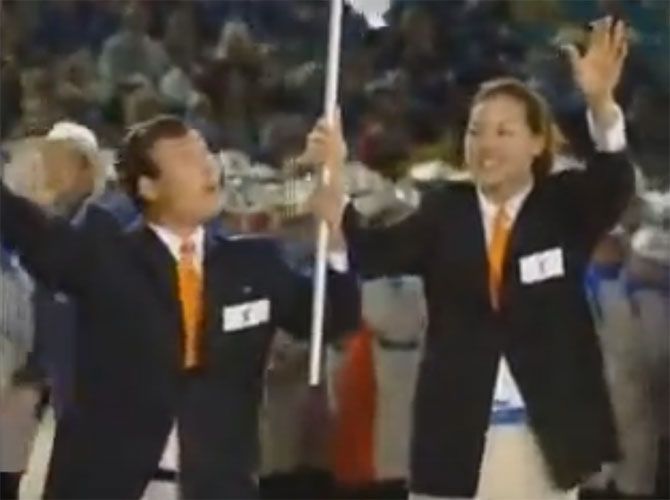
In a truly historic moment at the Olympic Games, the North Korean and South Korean teams marched together at the opening ceremony of the 2000 Games in Sydney.
Led by flag-bearers female basketball player Chung Un Soon from South Korea and Park Chong Chul, a male judo coach from the North, the teams walked hand-in-hand with the 'flag of unification' -- it had a blue outline of the entire Korean peninsula against a white background.